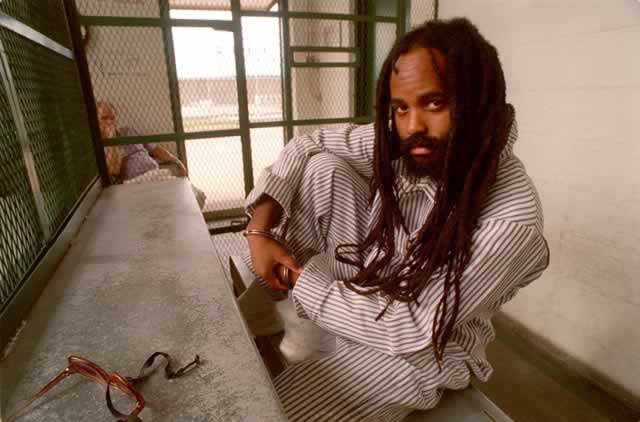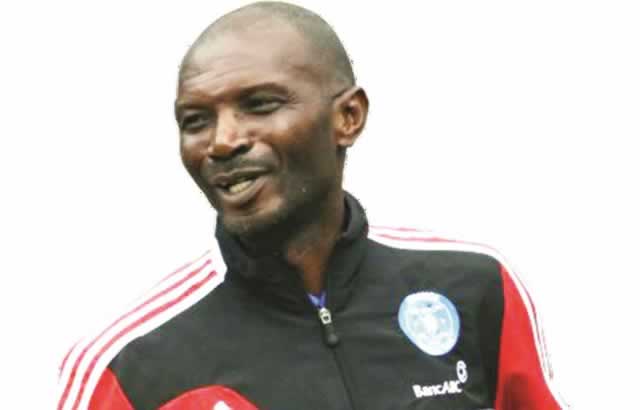‘Long live Zimbabwe!’


MUMIA ABU JAMAL . . . “It’s always interesting who the West opts to indict on human rights charges and, more importantly, whom it does not”
THE INTERVIEW Obi Egbuna
Mumia Abu Jamal (MAJ) has been imprisoned in the state of Pennsylvania for the alleged shooting of Philadelphia police officer Daniel Faulkner, where he currently sits on death row nearly 30 years after the original sentencing. He is a pan-Africanist and has weighed in on US/West-Zimbabwe question and connected the current black struggles in the US and what Zimbabweans faced during the liberation struggle. He spoke to our US correspondent Obi Egbuna (OE).
OE: Brother Mumia, Zimbabwe’s late Vice President Joseph Msika who served 20 years in prison during the liberation struggle, stated that if the US government were to lift their travel ban on him, the first thing he would have liked to do was visit you in prison. When he would engage US-based visitors to Zimbabwe, he would always inquire about not only your case, but the cases of Leonard Peltier and the Cuban Five as well.
He emphatically stated prison either hardened your resolve, or made you conform and submit to the enemies of progress. How does this make you feel?
MAJ: I am glad in the case of the late Comrades Msika, Maurice Nyagumbo and even President Mugabe who himself served 11 years in a Rhodesian jail cell, prison certainly hardened their resolve. I think the people of Zimbabwe and Africa as a whole are glad the imprisonment of the revolutionary leadership, resulted in an intensification of the armed struggle, and the masses genuine resistance prevailed. Prison inevitably reveals the truest face of any state, for it is the state, unclothed. Thus, if a nation is repressive, if it is racist, if it is fundamentally unjust, it will be seen in its raw form in prison. It’s true: jail either frees you, or it enslaves you. That is its essence.
OE: Brother Mumia, in order to justify the maintenance of sanctions on Zimbabwe, the US-EU alliance never hesitates to accuse Zimbabwe of human rights abuses. As someone who has always been on the forefront of our fight against police brutality and the unfair criminal justice system, how do you view these claims?
MAJ: It’s always interesting who the West opts to indict on human rights charges and, more importantly, whom it does not. Think about this: how can the US/EU endorse sanctions for one country where such allegations are made, yet refuse to consider it in another, where similar allegations are made? It is hard to feel that these are not pretexts for other neo-colonial objectives. For example, we all have read, of such violations Egypt, Saudi Arabia, etc. These states receive praise as allies or in Egypt’s case, billions of dollars in foreign aid. Does anyone see a double standard here? Moreover, just the other day, I read an excerpt from the Edward Herman and David Peterson book, “The Politics of Genocide” where the following note was made: Just as the guardians of “international justice” have yet to find a single crime committed against a white-northern power against people of colour that crosses their threshold of gravity, so too all of the fine talk about the “responsibility to protect” and the “end of impunity” has never once been extended to the victims of these same powers, no matter how egregious the crimes. The Western establishment rushed to proclaim “genocide” in Bosnia-Herzegovina, Rwanda, Kosovo, and Darfur, and also agitated for tribunals to hold the alleged perpetrators accountable. In contrast, its silence over the crimes committed by its own regimes against the peoples of Southeast Asia, Central America, the Middle East and Sub-Saharan Africa is deafening. This is the “politics of genocide.” We needn’t mention Iraq or Afghanistan.
OE: Brother Mumia, the National Endowment for Democracy is currently financing about 14 civil society groups in Zimbabwe and the money is being funnelled through the so-called Zimbabwe Solidarity Fund, which is monitored by TransAfrica Forum, Africa Action and the Priority for Africa Network. What is your take on this matter?
MAJ: We need look no further than the papers from Wiki-Leaks, which revealed the US is taking the place of the UK in neo-colonialist projects of this nature. When nearby Haiti was ravaged by an unprecedented earthquake, the US sent armed soldiers, promised acres of aid, and when the media left the US promptly left them to stew in the mud. As for “democracy”, didn’t the US force out Haiti’s elected President Jean-Betrand Aristide? Why? Because he demanded about a dime more be paid to Haitian workers for a minimum wage. The NED is the mask for the CIA (and related agencies), with objectives that have nothing to do with democracy. It has everything to do with capitalism, neo-colonialism, and US control over the natural resources of other countries.
OE: The African Union and the Southern African Development Community have repeatedly called for the lifting of US-EU sanctions on Zimbabwe, the dominant sentiment is these sanctions are a vindictive response to Zimbabwe’s historic land reclamation programme and their decision to fight off a US-Rwandan-Ugandan invasion of the Democratic Republic of Congo in 1999. If Africans in the US continue to take a casual approach to this matter, what message are we sending to Africans at home and abroad along with other freedom loving people?
MAJ: Initially, this is rarely (if ever)reported in the US corporate Press. But even if it were, it would be simply distorted or ignored. It reminds me of the calls from the Arab League, Egypt, etc, demanding that the US not attack Iraq. The US could care less what its “allies” (especially its non-white “allies”) wanted. The same is true of the Obama administration, which was largely purchased by corporate monies. It follows the lead of Wall Street, not Martin Luther King Boulevard. Without an informed and militant popular movement, the US will ignore what Africans want, just as they ignore what Arabs want in Palestine or Iraq. We can all see that the US-EU sanctions on Zimbabwe are hardly just, but also the US call for AFRICOM – a military command for Africa! No sane African country wants a foreign army camped in their backyard. Yet the US is pushing for this.
OE: As an esteemed journalist in your own right, you have seen the manner in which the National Newspaper Publishers Association and the National Association Black Journalists have for all intents and purposes ignored the issue of Zimbabwe meaning the dominant viewpoint on Zimbabwe comes from the Voice of America, BBC, C-SPAN, and other the imperialist media apparatus. What do you think should be the role of the black journalists of the US regarding issues such as Zimbabwe?
MAJ: Most African-American journalists of previous decades, found their openings in the field only because of our liberation movement and the Civil Rights era, pushing for these spots. Thus, they were allowed to work in their chosen field because of the popular rebellions of the 60s. Many younger journalists have only read about that era, and therefore know little of that age. They think of themselves as journalists first: not African people engaged in the field of journalism.
They therefore take their cues from their professional bosses, not their community. There is also the undeniable truth that the massive levels of media mergers and acquisition have reduced the number of agencies which are not owned by the very few moguls that controls US media, in almost all fields (books, CDs, movies, newspapers, TV, etc).What that means, in the real world, is that our journalists are scared of being alienating their corporate owners, for fear they will be not only fired but blackballed by the industry.
Thus, there is little challenge to the corporate status quo. That may be sad, but it is the truth about how the world works. When I was president of the Philadelphia Association of Black Journalists, we tried to lay the foundation that would empower us to reverse this reactionary and counter-revolutionary trend in the arena of media and information. It’s also true that there are fewer and fewer media businesses that we as Africans truly own and control. In Philadelphia, there is only one African owned radio station. In Pittsburgh, there are none. In both cities, where there are large African communities, African radio stations had a storied life in those regions, with former powerhouses like WDAS-FM (Philadelphia) and WAMO-AM/FM(Pittsburgh), which were both bought by white companies.
As in African continental life, where there is no independence, there can be no freedom. In the case of Zimbabwe they are forced to take the same approach they did during the days of the Second Chimurenga, when all they had was the historic Voice of Zimbabwe broadcasts from Mozambique, which ensured clarity for the masses of the people who crossed the border by the thousands to wage struggle on the battlefield. After all these years guerrilla media continues to serve us well in the face of adversity.
OE: Brother Mumia, do you have any special message for the leadership and people of Zimbabwe?
MAJ: When Zimbabwe announced its independence from the UK-backed Smith regime, Africans the world over exploded with joy. I remember the late great Bob Marley performed at the independence celebrations. Therefore, I think lovingly of all the Zimbabwe people and all the peoples of Africa who are our brothers and sisters. We wish we could support them with more than our words. As for the leaders, I wish them the wisdom, the will and the wherewithal to bring their people to true freedom, true liberation, and better lives. Malcolm X said many years ago that as Africa goes, so goes her children all over the world. When it does well, our situation can become better. Let it be so! Long Live Zimbabwe!










Comments